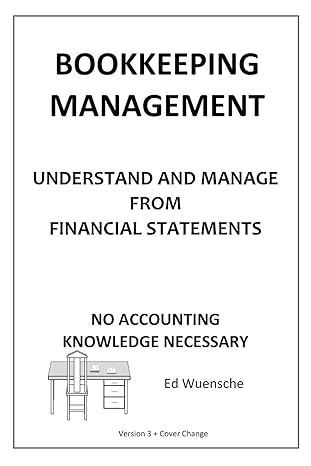Question
PLEASE ANSWER ALL PARTS FOR A THUMBS UP RATING. THANK YOU! 1. Zev is entitled to a worthless stock deduction after the company declared bankruptcy
PLEASE ANSWER ALL PARTS FOR A THUMBS UP RATING. THANK YOU!
1. Zev is entitled to a worthless stock deduction after the company declared bankruptcy and eventually was liquidated. But of course not all bankruptcies end in liquidation. Many bankruptcies are the reorganization type, the company comes out the other side with a restructured balance sheet and life goes on. And even though common stockholders are at the back of the line in terms of priority, sometimes their stock does not become worthless. Lose some value? For sure. Lose all value, down to zero? No.
What would have been the FIT result in this example if Zevs stock lost some value but never became completely worthless? Assume that Zev had paid $40 per share for his 500 shares. Also assume that, although trading in the stock was halted temporarily, it quickly resumed. Assume that the value of Zevs stock fell as far (but only as far) as $7 per share, and that he still owns it.
2. Petitioners reside in California. Petitioners owned an undeveloped parcel of land in Lake Havasu City, Arizona. Petitioners held the Arizona property for investment. Petitioners desired to own investment property closer to their California residence. After receiving limited advice concerning a tax-free exchanges, petitioners took steps to sell the Arizona property and purchase new property as a tax-free exchange. In March 2005, petitioners sold the Arizona property for $76,000. The buyers paid petitioners $10,000 while $66,000 was placed in escrow with Capital Title, Inc. Toward purchase of California property, petitioners made three separate payments (deposits) totaling $100,800 to Chicago Title Co., to be placed in escrow. The Capital Title and Chicago Title escrow agreements did not refer to a like-kind exchange, nor did they limit petitioners' right to receive, pledge, or borrow the funds.
The cash proceeds from the sale of their Arizona property that were placed into escrow ($66,000) in fact were never received by Mr. & Mrs. Crandall, even momentarily. That fact should have resulted in a decision that they correctly reported the sale and follow-on acquisition of the California property as a good 1031 LKE.
Discuss if you agree if this should be a substance-over-form doctrine.
Step by Step Solution
There are 3 Steps involved in it
Step: 1

Get Instant Access to Expert-Tailored Solutions
See step-by-step solutions with expert insights and AI powered tools for academic success
Step: 2

Step: 3

Ace Your Homework with AI
Get the answers you need in no time with our AI-driven, step-by-step assistance
Get Started


